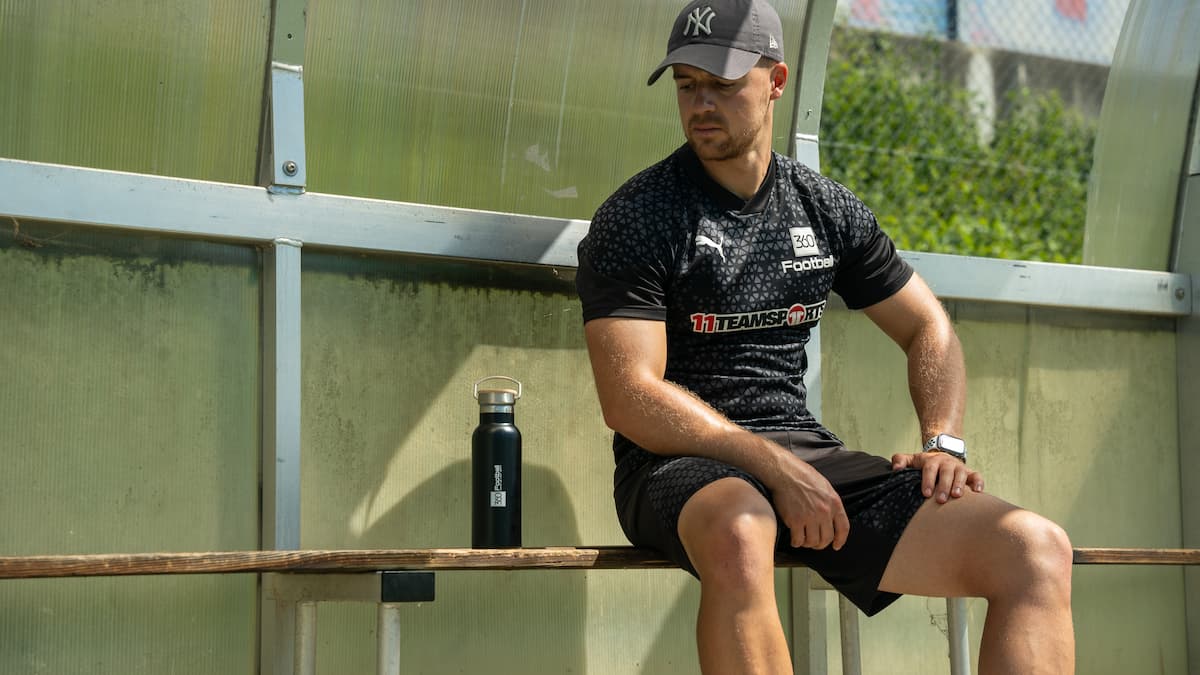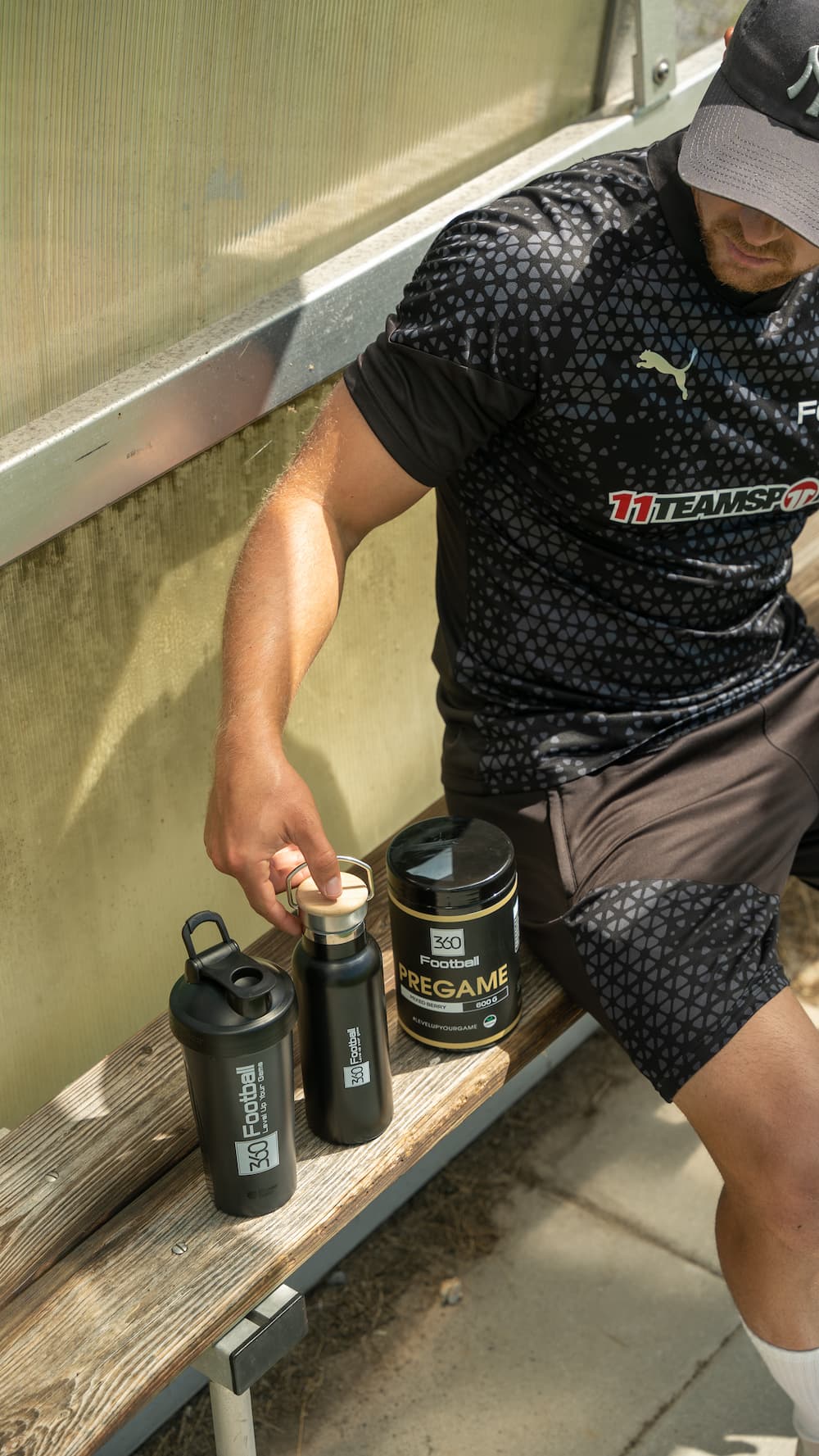Nutrition . Probably the most important topic in top-class sport in recent years. Together with recovery (regeneration), mental therapy and advanced training on strength machines, nutrition is also an additional factor for optimizing performance in addition to the actual training. This model is particularly popular in football optimal load control (using all of these performance influencing factors) in the Everyday life of a professional player been integrated.
The current scientific situation shows that a targeted nutrition the Performance and the ability to regenerate positively influenced (studied in: Nutrition for football, FIFA/F-MARC consensus conference, 2006 ).
2020 was fitting by a UEFA expert group one Guidelines regarding daily nutrition for professional footballers published. In the following blog post, these guidelines are explained and presented in an understandable way.
Nutrition during the current season (with one game per week)
Questions often relate to nutrition from players only on match day . However, the diet during the Training week is often much more crucial - namely during the other 6 days of the week. During the season, the top physical goals should be:
- To at least maintain physical performance such as strength, endurance and speed.
- To remain injury and illness free.
- Try out different strategies on how to perform optimally on game day.
At all three goals can the Proper nutrition is crucial help. The macronutrient requirements during the season are described below. In principle (since we are not under construction during this time) you should at least Consume as many calories as you burn per day .
Protein requirements:
Since physical activity puts strain on both the muscles and fascia (connective tissue around the muscles) as well as the passive musculoskeletal system (i.e. tendons, ligaments, cartilage and bones), one Substantial amounts of protein are required to supply these structures. The recommendation from UEFA ( Collins et al., 2021) is attached 1.6 – 2.2 grams of protein per kilogram of body weight in order to have optimal physical adaptations to the given load. For a player weighing 80 kg, this amounts to approximately a daily protein requirement of 130 – 176 grams . In addition, this amount should be divided as evenly as possible over 3 - 4 meals. We at 360Football recommend 4 meals and the higher reference value to be on the safe side. It is also important that the Quality of protein high is, i.e. it contains a large amount of essential amino acids, especially L-leucine.
Fat requirement:
Fat requirements are an often discussed topic. The daily amount of fat in footballers is often reduced due to the high calorie density, which can have disadvantages in terms of health and performance. Fats are important for many organ functions (despite their bad reputation) and can therefore lead to physical problems if consumed too little. Therefore the should Daily fat consumption 25 – 30% of total calories turn off. With a consumption of 3500 kilocalories, this amounts to approx 100 gram . What's important is one thing Pay attention to a high proportion of omega-3 and omega-6 fatty acids (>10%), which are found, for example, in nuts and seeds, algae or fish .
Carbohydrate requirements:
The macronutrient that receives the most attention is carbohydrates. Carbohydrates are stored in the body as glycogen and are the Main supplier of energy for footballers . Since these stores are emptied with every workout in endurance sports, it is important to have one To cover a considerable proportion of the daily food intake with carbohydrates to refill memory . Since training weeks can vary greatly in terms of scope and intensity, the recommendation is given in a larger range. The UEFA paper recommends this 3 – 8 grams per kilogram of body weight of carbohydrates per day . The player position also plays a big role. Particularly Full-backs and central midfielders should probably be at the higher end of the recommended range , as these players have a higher energy consumption.
What the distribution When it comes to carbohydrates at meals, it makes sense Amount of carbohydrates especially in the Maintain a high meal immediately before and after training to optimize performance and recovery (Anderson et al., 2016).
In the following video we answer five important questions about nutrition for footballers . You've already read some things, but you'll get lots of additional tips !
Nutrition in the pre-season (preparation for the season)
Since in preparation (pre-season) the amount of training both on the pitch and in the gym is a lot more intensive and extensive, this phase of the year should More food is consumed (keyword: structure) . Goals in this preparation phase are:
- To improve the performance parameters of endurance, strength and speed
- To reduce the percentage of body fat (and thus increase the percentage of muscle mass).
In order to achieve these goals, it is essential that players use their Calorie consumption on a daily basis in a light manner Surplus of 100-200 Keep calories. This excess should be replaced by something higher consumption of carbohydrates and proteins be guaranteed. In other words, you should be at the upper limit of the recommendations in the previous chapter.
It is important to know that the excess of Weight is gained . However, this is completely sensible and legitimate , since as already mentioned, the goal is to increase the percentage of muscle mass (which in itself means gaining weight). But it can also be the case that the weight stays the same because you will lose fat in the same time and this can be balanced out.
Get started now!
The table below (English) lists those discussed Goals and Recommendations for pre- and in-season listed again.

Image source: Collins et al. 2021
If you still now you have a lot of question marks in your head and you can't really do anything with the recommendations mentioned, then definitely take a look at ours Nutrition guide . He conveys to you simple and understandable a good one Basic knowledge about nutrition as a footballer and practical tips for your meals .
In the next blog post, the reference values for the Game day nutrition and the micronutrients that are important for footballers are discussed.
In this sense: #LevelUpYourGame also in terms of nutrition!
Sources
1) Nutrition for football : the FIFA/F-MARC Consensus Conference. (2006). Journal of sports sciences , 24 (7), 663-664. https://doi.org/10.1080/02640410500482461
2) Anderson, L., Orme, P., Naughton, RJ, Close, GL, Milsom, J., Rydings, D., O'Boyle, A., Di Michele, R., Louis, J., Hambly, C., Speakman, JR, Morgans, R., Drust, B., & Morton, JP (2017). Energy Intake and Expenditure of Professional Soccer Players of the English Premier League : Evidence of Carbohydrate Periodization. International journal of sport nutrition and exercise metabolism , 27 (3), 228–238. https://doi.org/10.1123/ijsnem.2016-0259
, et al UEFA expert group statement on nutrition in elite football . Current evidence to inform practical recommendations and guide future research



